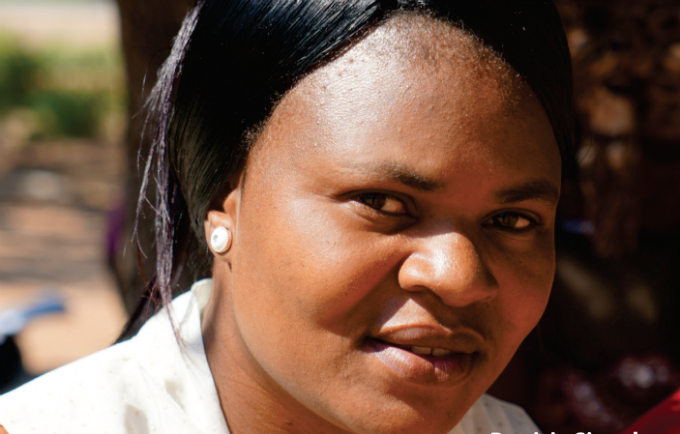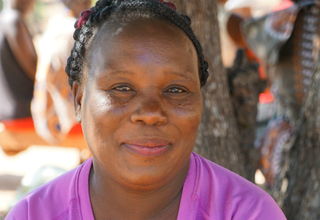Growing up 28-year-old Patricia Sigauke from Chibuwe village in Nyanyadzi, about 350km outside the capital Harare had ambitions of being a nurse. Sadly, she was not able to continue with school because her parents could not afford to continue schooling her.
“I grew up in a big family. There were six of us; life was not that easy to be honest as my parents struggled to take care of us,” explains Patricia
At the age of 17, Patricia wrote her secondary level examinations and did very well passing 6 subjects. But without the mandatory English subject she could not proceed to nursing school. Her parents informed her that they could not afford to pay for her to resit her English examination. With her school of nursing dream dashed, Patricia got married 3 years later.
“I had nothing to do so I decided I would get married. We hardly had enough food to eat at home so I thought if I got married it would mean one less person to feed for my parents,” says Patricia.
Today Patricia is a mother of two children. Based on her experience growing up in a big family, she has made the decision to have only one more child to make them a total of three. Many young people like Patricia in Zimbabwe are making the decision to have smaller families that they can afford due to increased knowledge of the benefits of Family planning and availability of a wide range of methods to choose from.
“I do not want to have children that I cannot take care of so my husband and I have decided to have no more than 3 children. I failed to achieve my dream of being a nurse and ended up getting married because there was not enough money for school fees for all of us; once I had failed that English exam my turn had passed; it was time for my other siblings to go to school,” says Patricia with a sad look on her face.
But as the old adage says: it is better late than never, this year Patricia sat for her English examination and she is looking forward to her results.
“My husband encouraged me to still pursue my dream of being a nurse; I am looking forward to the future. I have no hard feelings towards my parents; many people back then used to have large families because family planning was not readily available and also because people thought having many children would help with cheap labour in the fields and with various chores at home.”
UNFPA working with the Government of Zimbabwe has been supporting family planning programmes in Zimbabwe expanding choice for many women and girls such as Patricia. Zimbabwe’s Contraceptive Prevalence Rate of 67%, the highest in Africa is a sign of the changing fertility patterns in the country. The country is now taking the full range of contraceptive options to remote corners of the country by training health workers in remote health facilities on comprehensive family planning, including long acting reversible contraceptives, like implants and intra uterine contraceptive devices (IUCD) also called loops. – Bertha Shoko




